Sixth Form Subjects

ICT
| Exam Board | Cambridge Technical Introductory Diploma | Ask us a question | |
| Course Duration | Two Year, Full-Time | Apply | |
| Intake Date | September |
Course Overview
The Cambridge Technicals in IT have been developed to meet the changing needs of the sector, and prepare students for the challenges they’ll face in Higher Education or employment. Designed in collaboration with experts spanning the breadth of the sector, the Cambridge Technicals in IT focuses on the skills, knowledge and understanding that today’s universities and employers demand. Students will practically apply their skills and knowledge in preparation for further study or the workplace.
These qualifications aim to develop Students’ knowledge and understanding of the principles of IT and Global Information Systems. Students will gain an insight into the IT sector as they investigate the pace of technological change, IT infrastructure, and the flow of information on a global scale and the importance of legal and security considerations.
Students will also develop professional, personal and social skills through interaction with peers, stakeholders and clients, as well as theoretical knowledge and understanding to underpin these skills. These support the transferable skills required by universities and employers such as communication, problem-solving, time management, research and analytical skills.
Course Content and Assessment
Unit 1 - Fundamentals of ICT (Exam) - A sound understanding of IT technologies and practices is essential for IT professionals. Information learnt in this unit will provide a solid foundation in the fundamentals of hardware, networks, software, the ethical use of computers and how business uses IT.
Unit 2 - Global communications (Exam) - This unit will provide you with a greater understanding of how organisations use information sources both internally and externally and the types of information you will encounter. The skills gained by completing this unit will give you knowledge of the functionality of information and how data is stored and processed by organisations. You will also learn about how individuals use information of various types.
Unit 5 Virtual and augmented reality (course work) - You will learn about both technologies and how they are used. You will research both technologies and design both a virtual and an augmented reality resource. Finally, you will use your research and skills learnt whilst designing and creating resources to suggest future applications for virtual and augmented reality.
Unit 12 Mobile technology (course work) - You may come to this unit as a proficient user of a mobile phone but you may be less familiar with other mobile technologies and their operating systems. The aim of this unit is to broaden your knowledge and understanding of the wider potential of mobile technologies and its consequences to people and businesses. This unit is as much about new technologies as it is about promoting critical analysis of existing situations and proposing better solutions.
Unit 9 Product development (course work) - The purpose of this unit is to prepare you to undertake product development activities. You will learn about different product design methodologies and the role of the product development life cycle. In addition, you will discover the factors that influence product developments.
Learning Methods
Students are encouraged to investigate and research much of the course material themselves, both on an individual basis and as part of a group. The course is a mixture of formal lessons and practical work.
Future Pathways
The qualification helps students to progress on to higher qualifications such as HND and degree courses, or even straight into work. The course allows students to apply ICT to a variety of challenges which makes it a highly desirable and sought after skill thus opening many avenues of employment.
 POSSIBLE Careeer Pathways
POSSIBLE Careeer Pathways
ICT students progress to higher education courses and employment in:
1. Programmers and software development professionals
2. IT business analysts, architects and systems designers
3. IT user support technicians
4. Information technology professionals
5. Cyber security professionals
6. Data analysts
7. IT operations technicians
8. Natural and social science professionals
9. Actuaries, economists and statisticians
10. Higher education teaching professionals
Entry Requirements
Students should also be well motivated and have a good knowledge and understanding of ICT.
Student Testimonial
Testimonial in the pipeline
Other courses of interest
- Creative Digital Media
- Psychology
- English Language





